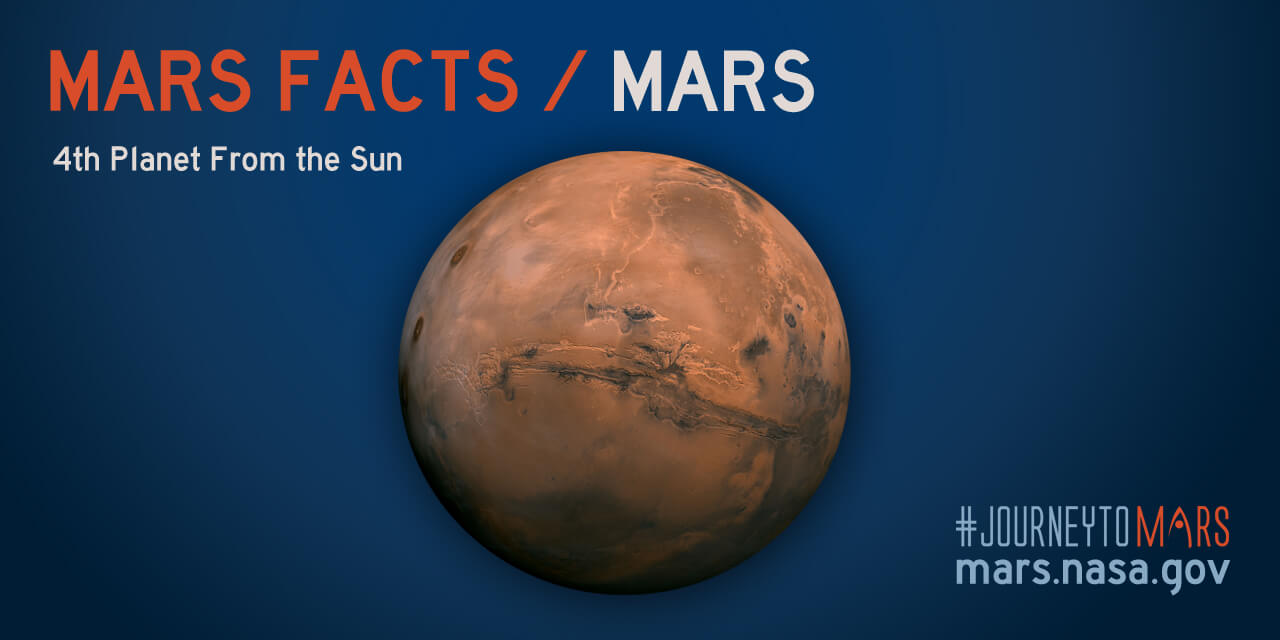
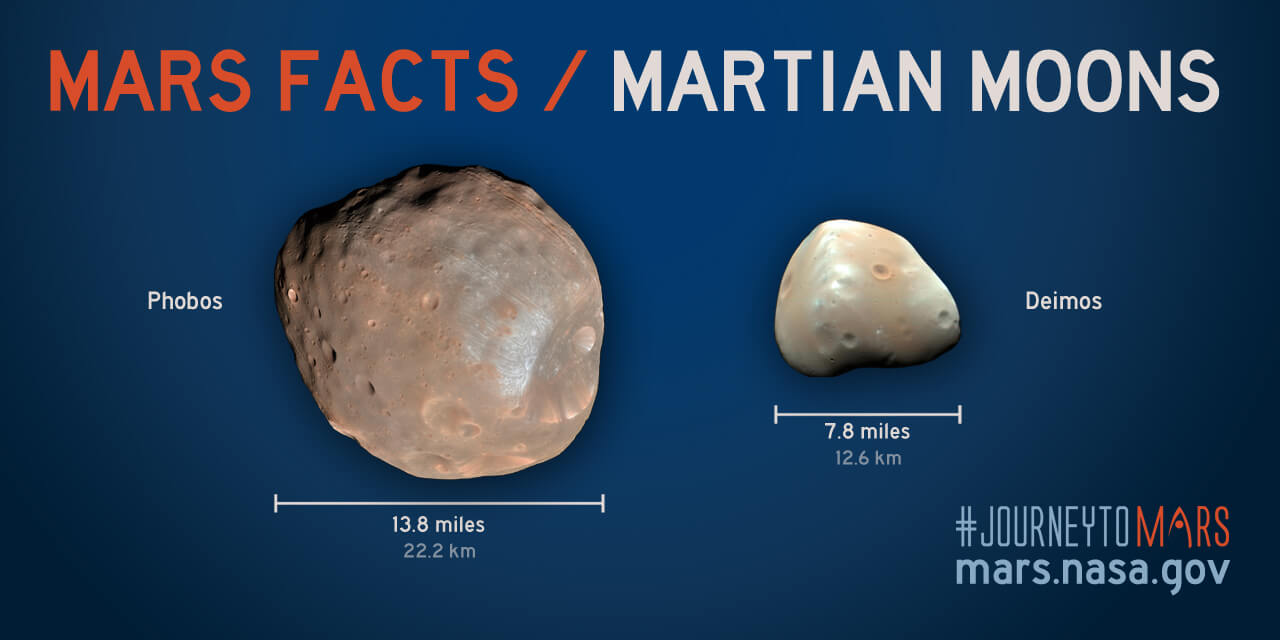
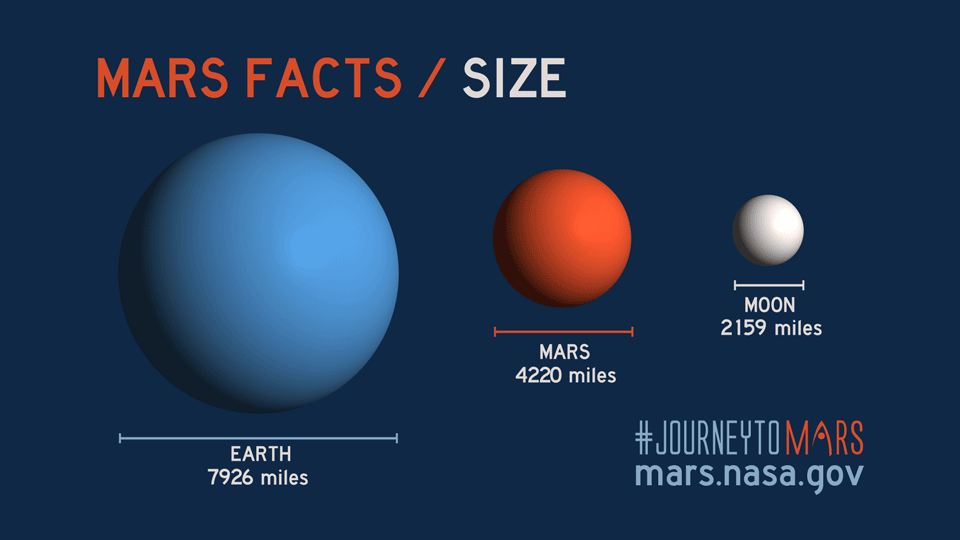
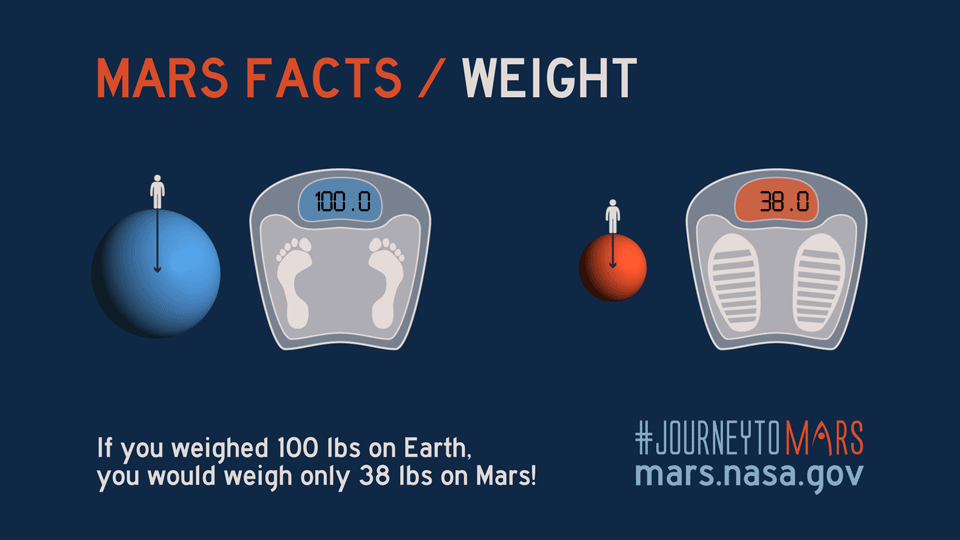
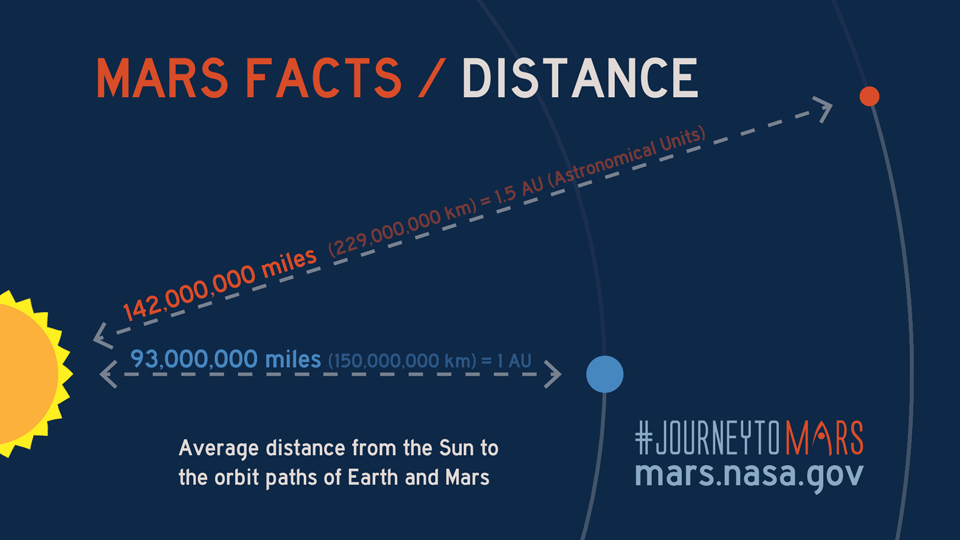
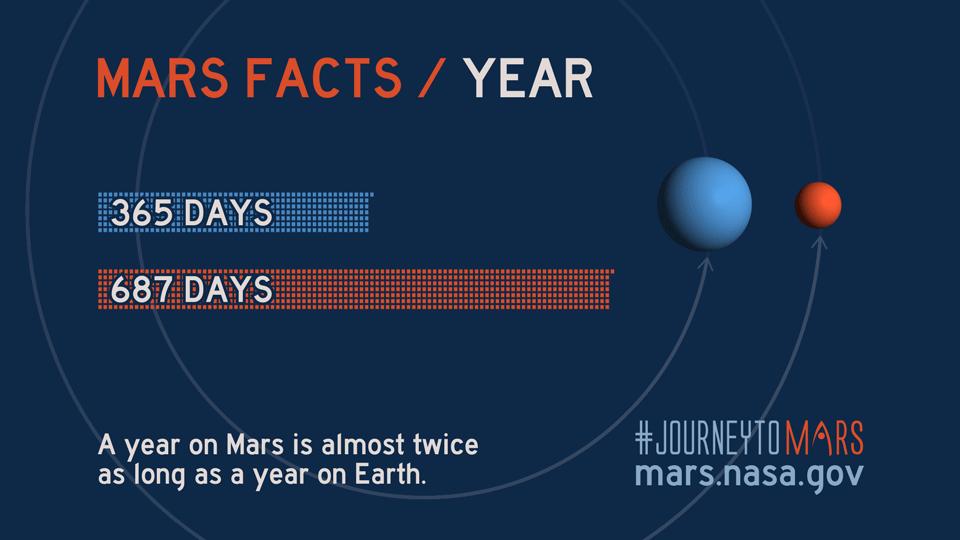
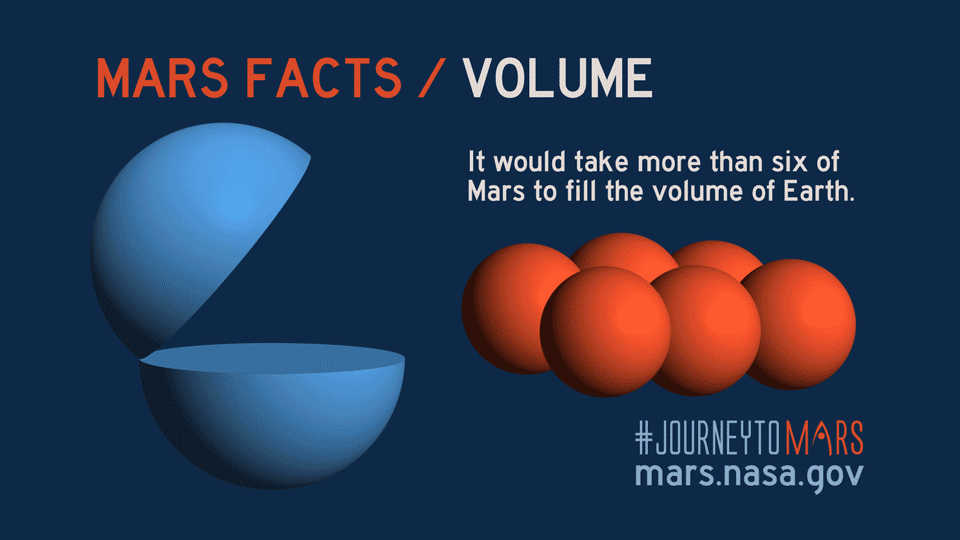
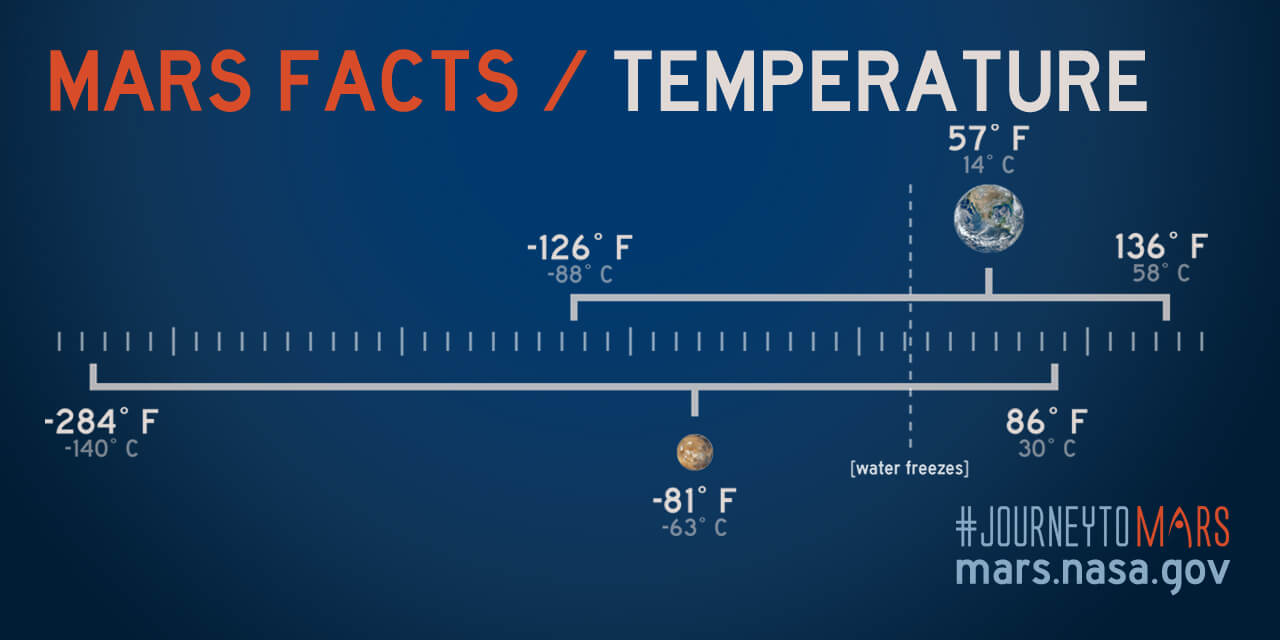
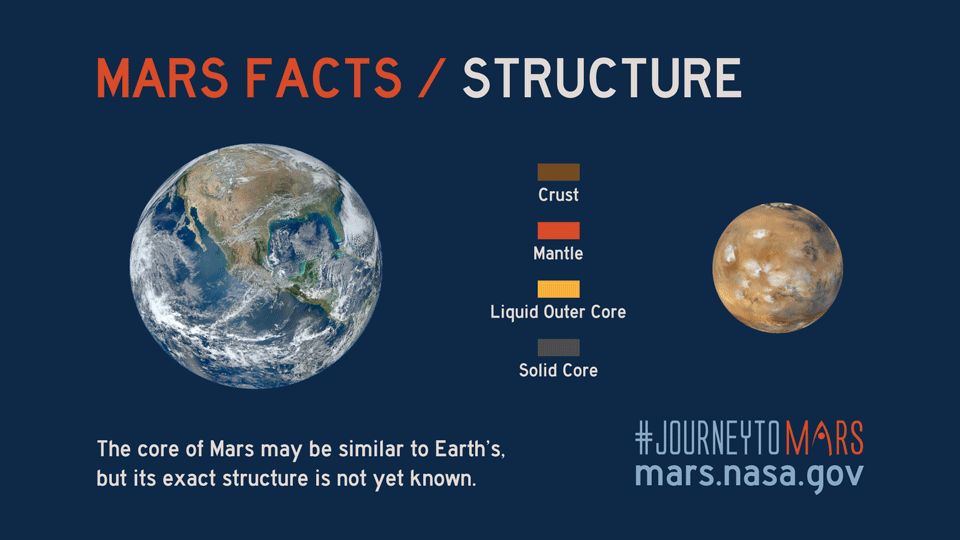
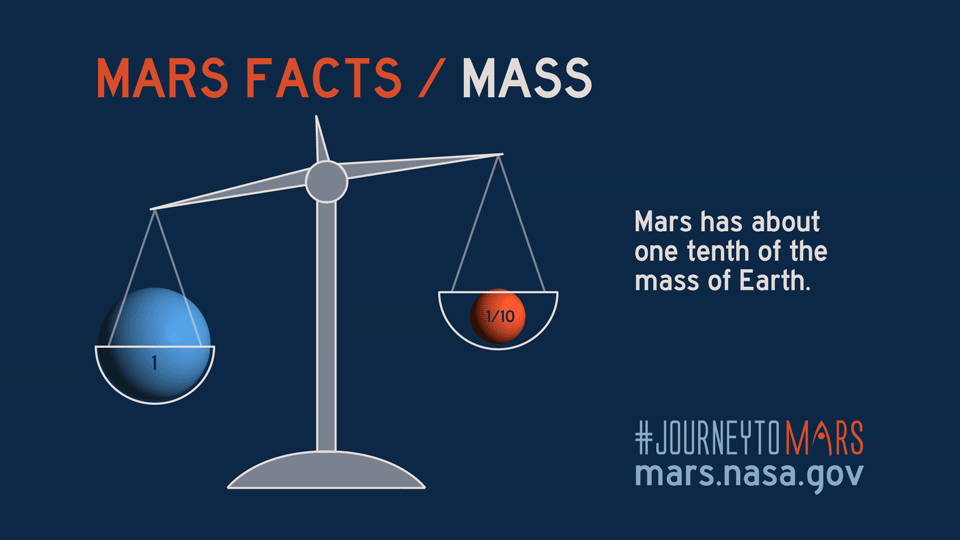
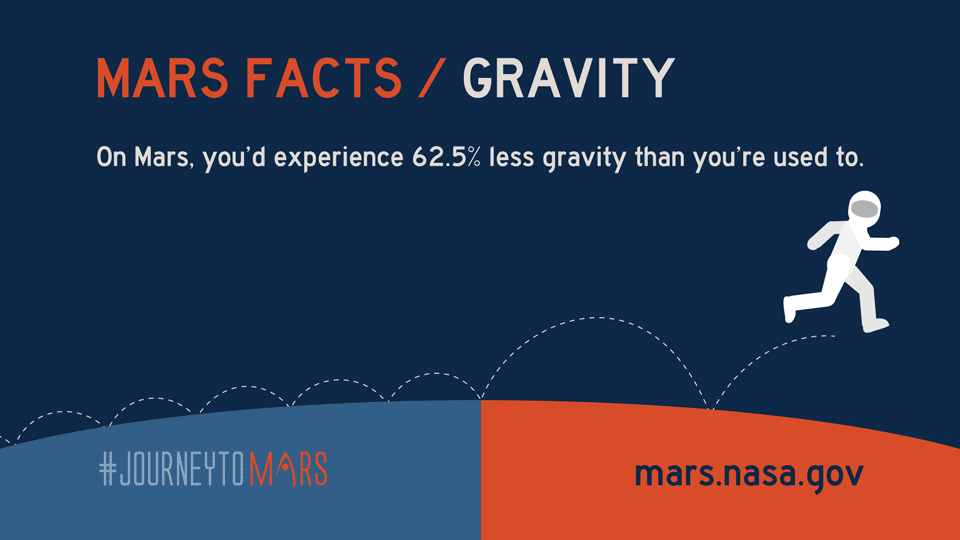
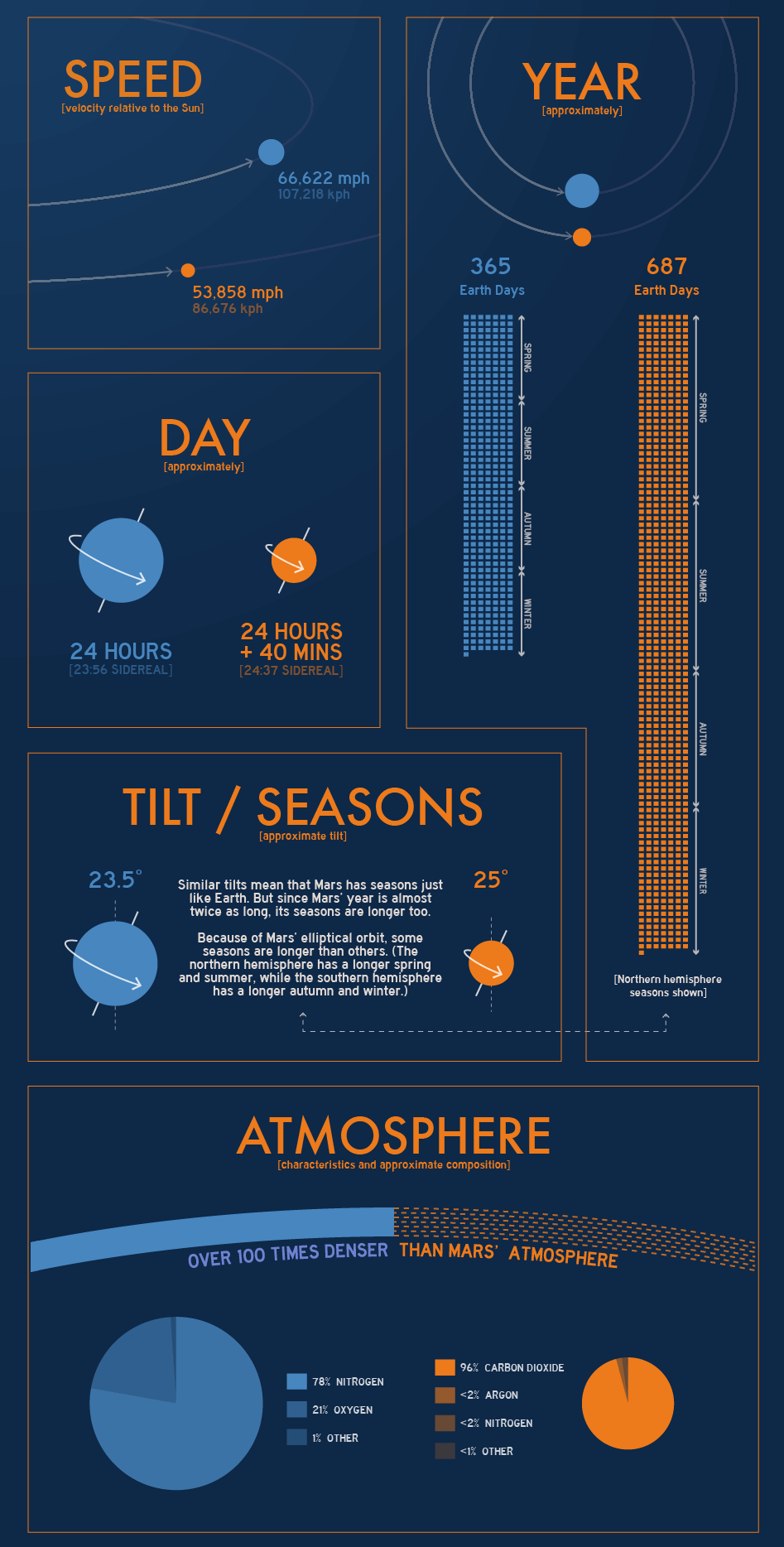
| EARTH | MARS | |
|---|---|---|
| Average Distance from Sun | 93 million miles | 142 million miles |
| Average Speed in Orbiting Sun | 18.5 miles per second | 14.5 miles per second |
| Diameter | 7,926 miles | 4,220 miles |
| Tilt of Axis | 23.5 degrees | 25 degrees |
| Length of Year | 365.25 Days | 687 Earth Days |
| Length of Day | 23 hours 56 minutes | 24 hours 37 minutes |
| Number of Moons | 1 | 2 |
| Gravity | 2.66 times that of Mars | 0.375 that of Earth |
| Temperature | Average 57 degrees F | Average -81 degrees F |
| Atmosphere | nitrogen, oxygen, argon, others | mostly carbon dioxide, some water vapor |
FUN FACTS !
-
RED PLANET
Mars is also known as the ‘Red Planet’ because, well, it’s red! This signature colour comes from the large amount of a chemical called iron oxide (or ‘rust’ as you might know it) in its rocks and soil.
-
2nd SMALLEST
Mars is the second smallest planet in the solar system after Mercury. With a diameter (distance through the middle) of 6,791 kilometres, it’s roughly half the size of Earth.
-
BRR!
It can get pretty cold on Mars –– much colder than our own planet, since it’s further away from the sun. At the equator, temperatures can reach 20°C, but at its poles they can plummet to as low as -140°C. Brr!
-
PEAK !
Mars is home to the highest mountain in our solar system –– a volcano called Olympus Mons. Standing a whopping 24 kilometres high, it’s about three times the height of Mount Everest!
-
DUSTY
They can last for months and cover the entire planet. The seasons are extreme because its elliptical (oval-shaped) orbital path around the Sun is more elongated than most other planets in the solar system.
-
RING?
In the next 20-40 million years Mars’ largest moon Phobos will be torn apart by gravitational forces leading to the creation of a ring that could last up to 100 million years.
-
SKIES
During the martian day the sky is pinkish-red, this is the opposite of the Earth’s skies.
Sunsets on the Mars are blue as opposed to the golden sunsets on Earth!